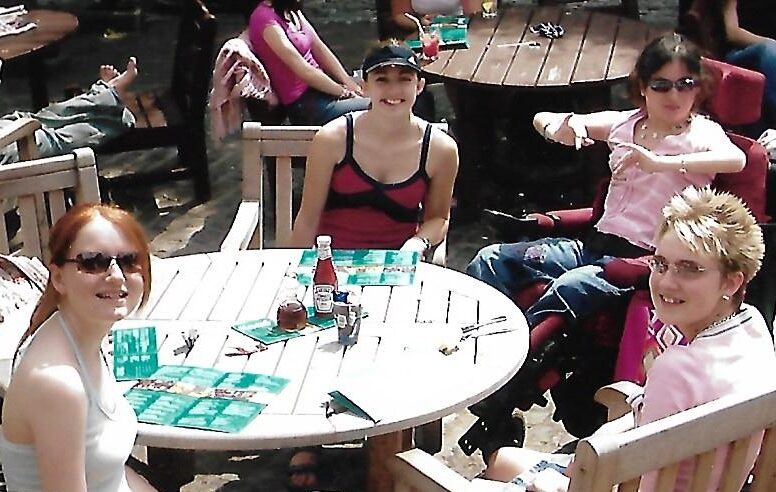Inclusive support and relationships: Personal assistants
By Maresa Mackeith, ALLFIE’s Youth Parliamentary Officer

Disabled people have the right, as stated in Article 19 of UNCRPD, to be included in their communities with the “personal assistance necessary to support living and inclusion in the community” (b). Young people also have this right to be included at school, with appropriate support. (Article 24 2 b and 2 e). In addition, young people with communication needs have the right to “augmentative and alternative modes, means and formats of communication” (Article 24 3a). Many Disabled people struggle to recruit and get the role of a personal assistant recognised for the skills involved.
I am in the process of recruiting a new personal assistant. Every recruitment, for me, is momentous as I use a communication system that depends on support from a PA. This means I cannot share my thinking or my needs without that support. The skills the PA will have to learn might take months and depend on a close relationship. This is the same for a Young person in school with similar needs.
The recent SEND Alternative Provision Improvement Plan implies that Young Disabled people with “complex” needs should go to a special school and be separate from others. In my experience of a special school, this never included making a relationship with an assistant who knew what I needed. It was, instead, being passed around from one person to another, none of whom had the skills to assist my communication.
Developing a relationship with a PA takes time as there has to be a level of trust that is not often encountered in most people’s everyday life. Many Disabled people, like myself, cannot ask for what we need, express our thinking or move on our own so are completely dependent on help for everything. The upside of this is that I have made close relationships with many of my PA’s.
For Young Disabled people in a school setting all this has to be taken into account. In school a Young disabled person has to make friends and they have to be able to express their thinking by whatever means is best for them. The assistant has to have a developing relationship of trust with the young person with the time and commitment to learn the skills needed. The job of the assistant in school for Young people, with a level of need similar to my own, is about enabling the right to a life and the recognition that the young person also has the right to be able to contribute to the lives of the others around them.
The separation of young people with “complex” needs in units or special schools is a denial of these rights. All Young people have something to give society as a whole.
As part of ALLFIE, in my role as Youth Parliamentary Officer, I am looking forward to having the opportunity to give Young Disabled people a voice to those who create education policies.
We need a society where all Young people have their needs met and can contribute in their own way. The only way to achieve this is for all young people to grow together with the time and resources to meet their needs. This means, for some, that a consistent developing relationship with assistants is crucial. Other Young people will then see that it is their right too to have the help they need from people they know and trust.
![Allfie [logo]](https://www.allfie.org.uk/wp-content/themes/allfie-base-theme/assets/img/allfie-logo-original.svg)



